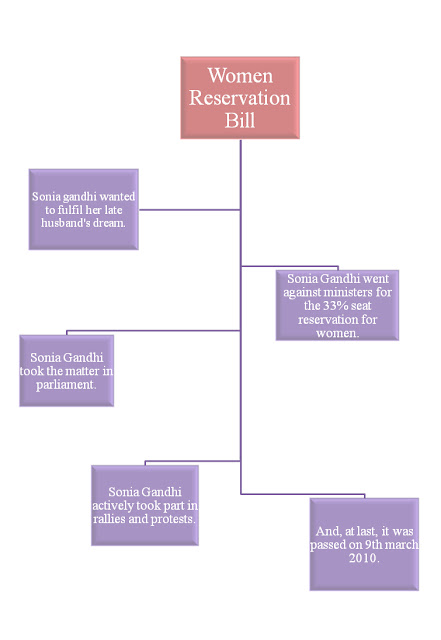Introduction
Sonia Gandhi is the President of the Indian National Congress, one of the major political parties of India India
Web Chart Explanation
Empowering the women - Empowerment is defined as “the expansion in people’s ability to
make strategic life choices in a context where this ability was previously denied to them.”Policy and programs need, as a matter of urgency, to address gender norms that tend to privilege the
well-being of men and boys at the expense of women and girls, leading to women’s lack of economic options and lack of autonomy.
Setting up of educational programmes - Educational programmes will help such as the Design Global Change’s (DGC) proposal: Bringing girls into focus; a gender equality campaign that will raise awareness of women’s important roles through the use of educational materials. DGC created a set of cards depicting Indian men and women in various roles (collecting water, farming, selling goods, etc.); these cards aim to trigger conversations about gender issues among high school youth and are accompanied by a teacher’s guidebook, which will be used to raise awareness.
Providing jobs - Providing jobs for women in urban and rural areas will help in reducing gender inequalities such as creation of IT sector jobs and the proliferation of knowledge-based enterprises run by women in rural areas.
Enforcement of laws - India








0 comments:
Post a Comment